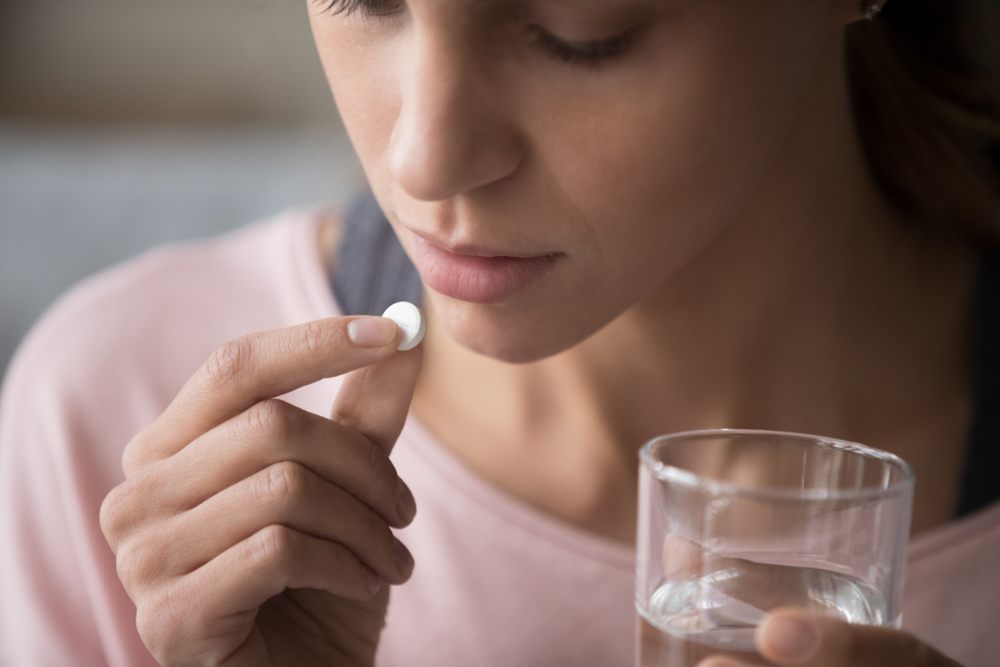
New research has found that the use of antidepressants increased the odds of implant failure by four times. Each year of antidepressant use doubled the odds of failure. While these drugs are often used to manage mood and emotions, a side effect decreases the regulation of bone metabolism, which is crucial to the healing process. For an implant to heal properly, new bone must form around it to secure it in place.
While antidepressant medication can relieve depression symptoms, their benefits must be weighed with the side effects. Four of the many known side effects that are reported in the literature are a big concern to dentists in regard to oral and bone health. These side effects of the drug include osteoporosis, a condition in which bones become weak and brittle; akathisia, a disorder characterized by the need to be in constant motion, including the head and jaw; bruxism, or teeth grinding; and dryness of the mouth, all of which affect the implant healing process.
If you, your family or friends need dental care, we would be honored to provide you with state-of-the-art dental care in our modern dental practice. Refer someone you love to someone you trust!
Presented as a service to the community by Doctors Hoover and Yanda,
39 Milford Drive, Hudson, Ohio 44236. 330-650-0360. www.drshooverandyanda.com

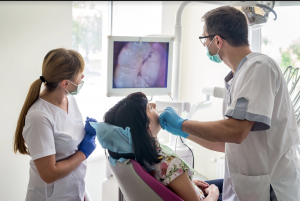 enlarged and are viewed on a computer monitor right in the treatment room so we can see even the smallest and most well-hidden areas of your mouth.
enlarged and are viewed on a computer monitor right in the treatment room so we can see even the smallest and most well-hidden areas of your mouth. 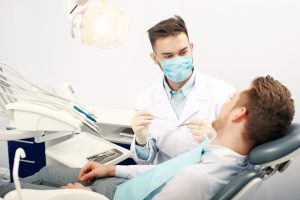 n that trust. When you choose an ADA member dentist, you’re choosing a dentist who has access to a wealth of up-to-date information and resources and has agreed to follow the ADA Principles of Ethics and Code of Professional Conduct and made a professional promise to put your health and well-being first. Here’s a breakdown of the five pledges dentists make in the ADA Principles of Ethics and Code of Professional Conduct.
n that trust. When you choose an ADA member dentist, you’re choosing a dentist who has access to a wealth of up-to-date information and resources and has agreed to follow the ADA Principles of Ethics and Code of Professional Conduct and made a professional promise to put your health and well-being first. Here’s a breakdown of the five pledges dentists make in the ADA Principles of Ethics and Code of Professional Conduct. 
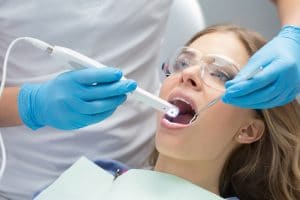 cameras that can be used inside of your mouth to see areas that are even hard for us to see! The video pictures that they take are enlarged and are viewed on a computer monitor right in the treatment room so we can see even the smallest and most well-hidden areas of your mouth.
cameras that can be used inside of your mouth to see areas that are even hard for us to see! The video pictures that they take are enlarged and are viewed on a computer monitor right in the treatment room so we can see even the smallest and most well-hidden areas of your mouth.
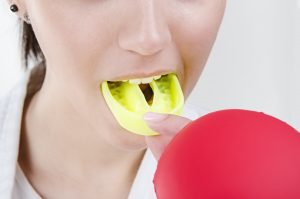 Mouthguards help cushion a blow to the face, minimizing the risk of broken teeth and injuries to your lips, tongue, face or jaw. They typically cover the upper teeth and are a great way to protect the soft tissues of your tongue, lips and cheek lining. Your top teeth take the brunt of trauma because they stick out more. Your bottom teeth are a little more protected because they are further back.
Mouthguards help cushion a blow to the face, minimizing the risk of broken teeth and injuries to your lips, tongue, face or jaw. They typically cover the upper teeth and are a great way to protect the soft tissues of your tongue, lips and cheek lining. Your top teeth take the brunt of trauma because they stick out more. Your bottom teeth are a little more protected because they are further back.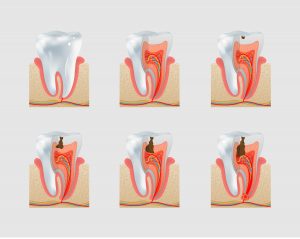
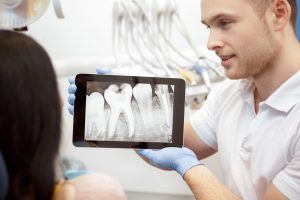 Radiography.
Radiography.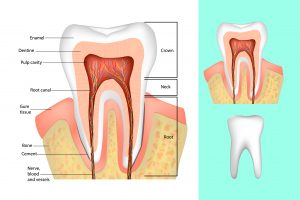 becomes deep enough, it exposes the pulp of the tooth to the bacteria that cause infection. Your body fights the infection by sending increased blood flow to the area. But because the tooth’s nerve and pulp are encased in enamel, pressure builds inside the tooth as a result of the increased blood flow. Swelling and pain begin.
becomes deep enough, it exposes the pulp of the tooth to the bacteria that cause infection. Your body fights the infection by sending increased blood flow to the area. But because the tooth’s nerve and pulp are encased in enamel, pressure builds inside the tooth as a result of the increased blood flow. Swelling and pain begin.